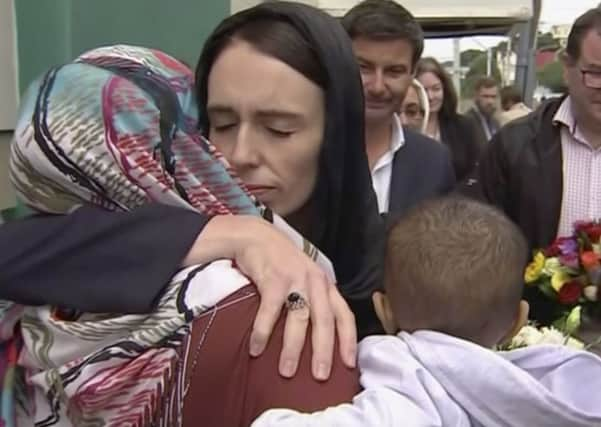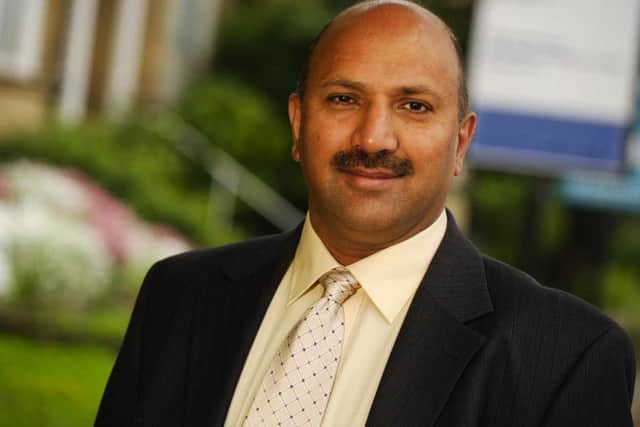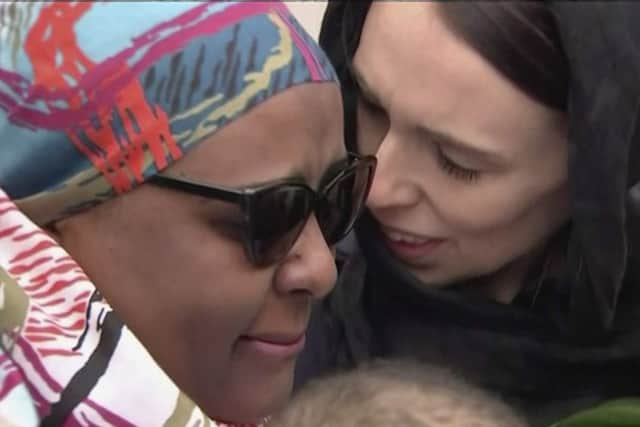Dr Mohammed Ali: One week on from Christchurch killings, social media’s role radicalising those who perpetrate these unimaginable crimes must be addressed far more vigorously


People in the UK are extremely worried. There has clearly been a rise in Islamophobia, particularly on social media, and there is real concern that more attacks on Muslims – such as the stabbing of a teenager in a Surrey village at the weekend – will follow.
Those fears have been exacerbated by the suggestion that the 28-year-old Australian charged with murder, Brenton Tarrant, was in some way reacting to events in the UK. Footage showed that one of the magazines for his semi-automatic weapon had the words “For Rotherham” emblazoned on it and his Facebook page apparently claimed he was inspired by the Finsbury Park mosque terrorist Darren Osbourne.
Advertisement
Hide AdAdvertisement
Hide Ad

The role social media plays in helping to radicalise those who perpetrate these unimaginable crimes must be addressed urgently and far more vigorously by Government.
There will always be extremists on every side of an argument, people with no religious beliefs who spread hatred of other people and other communities. There can be no doubt that social isolation, often brought about by deprivation and poverty, plays a huge role in that.
Advertisement
Hide AdAdvertisement
Hide AdAnd it is important that the Government does more to get to grips with the impact these factors can have on individuals. It needs to listen to organisations like my own, QED, which has spent 30 years tackling the effects of poverty and disadvantage by trying to provide opportunities for people in different communities to get to know each other better.


There are many people in all communities, however, who slip through the net; people whose inability to manage their circumstances – or to seek help from others in doing so – can lead to isolation and a powerful disdain for those they perceive to be better accounted for.
It is a small step from there to radicalisation. They don’t need to go anywhere to find people of like mind who blame their troubles on other communities – people they don’t understand or who they simply perceive as the “enemy” because they are different in some way.
If you’ve become insular, self-centred or bound up in your own problems, it is easy to find solace and comfort on the internet or social media. Not having real people to talk to makes it attractive to respond to the messages found in cyberspace which reinforce an increasingly twisted view of the world.
Advertisement
Hide AdAdvertisement
Hide AdSocial media can bring tremendous advantages for society, but it can also be a dark and damaging force because of the same lack of boundaries that make it a beneficial tool. Governments across the world, along with the hugely-profitable social media and internet companies, need to understand this better and make a united effort to find ways of constraining the darker side of freedom of expression and its effects, particularly on troubled individuals.
It was interesting to read the comments of Brenton Tarrant’s state-appointed lawyer after he was fired by the suspect. He said the way Tarrant “presented” was “rational” and as “someone who was not suffering any mental disability”.
But on what level can these cold-blooded killings be the product of a rational or normal mind? Most people have views about each other but they don’t express them by going to the extent of perpetrating mass murder or stabbing people in the street or driving vans at them.
We can never eradicate completely these kinds of acts. There will always be people who lack balance, who have mental health problems or no religious beliefs who take extreme positions in all societies. But we need to understand and act on the ways in which social media can reinforce them and help them to justify such actions in their own minds.
Advertisement
Hide AdAdvertisement
Hide AdOpposing all these fears, though, is a huge beacon of hope for all our futures. The aftermath of these events could yet prove to be a huge turning point for relationships between communities.
The way New Zealand Prime Minister Jacinda Ardern has conducted herself, and the way all communities involved have behaved over the past week, has been exceptional. The reaction of non-Muslim communities across the world is something from which not just Muslims but all of us should take comfort.
There have been extraordinary outpourings of grief and support for those directly affected by this atrocity. Muslims have been overwhelmed by the sympathy and understanding of the non-Muslim community.
The gunman, those he sought to emulate and those who might seek to copy him, may yet find that their efforts to divide communities and sow hatred have had the opposite effect.
Dr Mohammed Ali OBE is founder and CEO of the Bradford-based QED Foundation which strives to improve the social and economic position of disadvantaged communities.